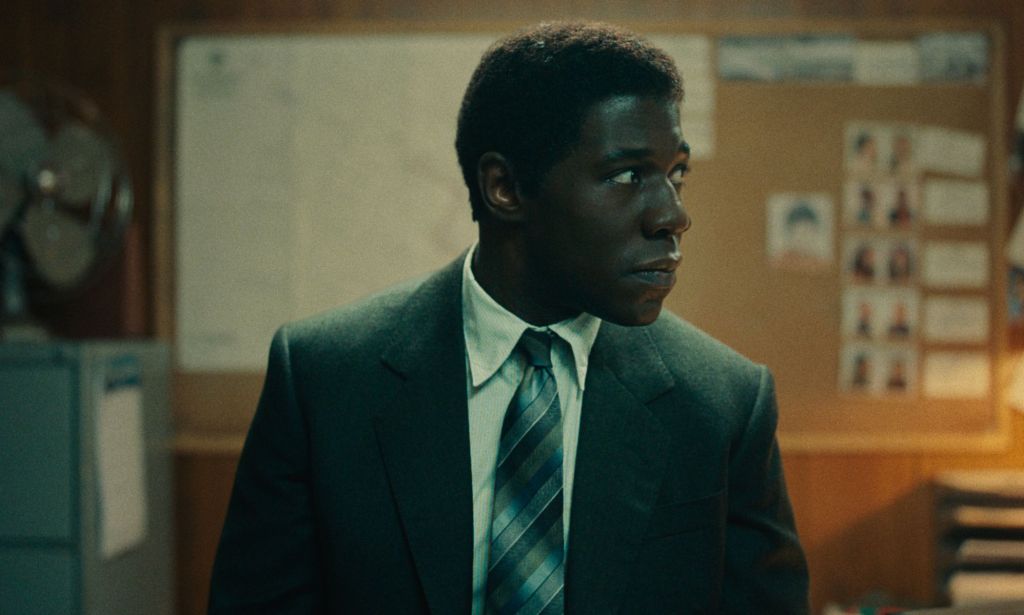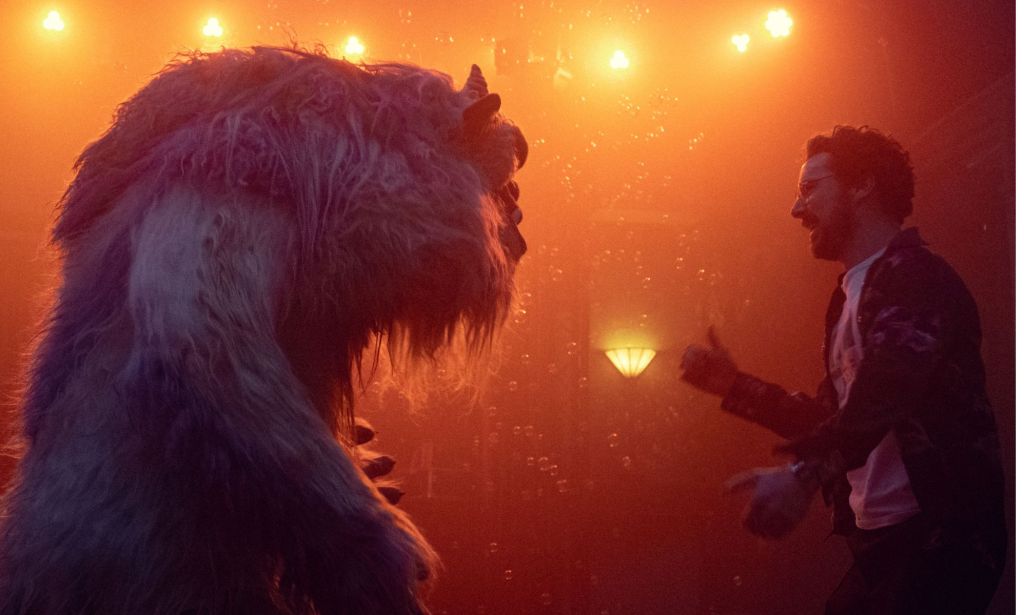Netflix’s Eric is a riveting watch – but its AIDS storyline has a big problem

Eric features a subplot about the AIDS epidemic, but it feels underdeveloped. (Netflix)
Eric features a subplot about the AIDS epidemic, but it feels underdeveloped. (Netflix)
Nowadays, a gripping streaming service show is as rare as gold dust. In a world where platforms seem to be living by the moto quantity over quality, and bafflingly cancelling shows when they do find an audience, Netflix’s new thriller Eric is a breath of fresh air.
The mini-series takes us to a grimy, smoke-screened New York in the 1980s. The Imitation Game star Benedict Cumberbatch is the volatile Vincent Anderson, a puppeteer working on a TV show during work hours, and embroiling himself in expletive-laden, wine-soaked arguments with his wife Cassie (Transparent actress Gaby Hoffman) in the evening.
After witnessing one of these rows, their quiet, creative young son Edgar (Ivan Morris Howe) disappears on his way to school the following day. Mapplethorpe’s McKinley Belcher III plays Michael Ledroit, a Black, queer NYPD detective assigned to solve the case.
There is a lot to love about Eric. Cumberbatch is likely to be among the awards for his frenzied take on a man losing control, while Hoffman is a powerhouse in her own right. Lesser-known queer star Belcher stakes his claim for bigger, meatier roles in the future.
Plus, for a six-episode mini-series, Eric is wildly ambitious. The main plot is gripping enough, but creator Abi Morgan manages to fold in sub-plots about New York’s homelessness crisis, mental health and addiction, infidelity, and institutionalised racism and homophobia in the police force.
There are also fleeting references to the Aids epidemic that was destroying the Big Apple’s queer community at the time, and it’s here where Eric misses one of its big swings.

Although the series has largely been lathered with critical praise, some reviewers have suggested Morgan has crammed too many socio-political talking points into such short air space, muddying the show’s purpose.
On the most part, I disagree: Eric is nothing without its reflection on how scores of homeless people survive the ruthless circumstances of the city, while a sub-plot about a queer, Black cop in the 80s would be shoddy without making a point about institutional homophobia and racism. But the crushing impact of the Aids crisis – which claimed tens of thousands of LGBTQ+ lives in New York in just a few years – feels side-lined in the tiny space it’s given.
We learn early on that Ledroit’s boyfriend William (Mark Gillis) is dying at home from the disease. In the few scenes of the pair together, their love is quiet yet palpable, devastating in its subtlety.
But I fear the almost unspoken nature of the circumstances surrounding William’s suffering will leave some, perhaps more historically unaware, viewers, none-the-wiser as to quite how catastrophic the period was for LGBTQ+ people.

Not all stories about queer people living through the 80s need to centre on the death and destruction wreaked by Aids, but if the epidemic is going to be a focus in any capacity, as it is in Eric, it requires more space, more nuance.
Morgan has previously suggested that it felt impossible to set a story in 80s New York and not bring the crisis into the mix. That’s true. But I wish Eric allowed just a handful more scenes to truly communicate the gravity of the situation. As it stands, the topic feels a little shoehorned in, a little inconsequential and underdeveloped.
Detective Ledroit is a troubled man, but as Belcher recently told PinkNews, the character goes on a journey through self-acceptance as the series progresses. That’s powerful to see.
However, if the Aids sub-plot had just a few more minutes to breathe, it would have helped Eric to place the multi-faceted experiences of queer people during the 80s even more successfully.
Eric is streaming on Netflix now.

